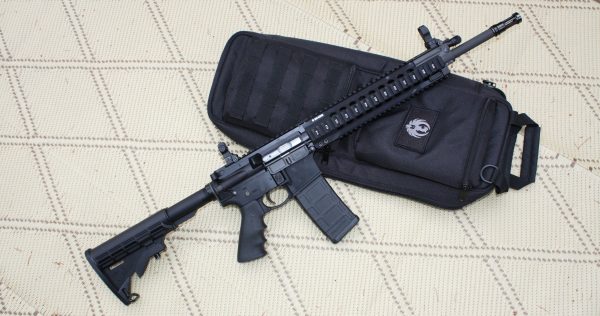
While 50 percent of Americans favor a nationwide ban on the sale of so-called “assault weapons,” according to a Quinnipiac University poll, 45 percent oppose a ban, making this the lowest level of support since the university first began asking about it back in February 2013.
At that time, 67 percent supported a ban and 29 percent opposed. According to Alan Gottlieb, founder and executive vice president of the Second Amendment Foundation, this is “clear evidence the public is waking up to the reality that gun bans are not the answer to violent crime.”
“Increasing numbers of people realize there is far more to this dilemma than firearms,” Gottlieb said. “For example, the same Quinnipiac poll shows a 40 percent plurality of voters think the real problem is rooted in mental health issues, more than twice the 19 percent who think the availability of firearms is at the core of the current crime spike.”
He suggested the ongoing crusade by the gun prohibition lobby to ban semi-auto rifles is misguided at best.
“The annual FBI Uniform Crime Report has consistently shown that rifles of any kind are involved in a fraction of all homicides in any given year,” Gottlieb noted. “Only 2 to 4 percent of all murders are committed with rifles, so this push to demonize and ban an entire class of rifles is not simply wrong, it borders on being delusional, and it is certainly dishonest.”
The Quinnipiac poll found that 57 percent of Americans support stricter gun laws, while 38 percent oppose them, but there is a significant split when it comes to party affiliation. By a 91-8 margin, Democrats want tougher gun laws, but Republicans do not favor further restrictions by a 64-32 percent division.
There is nearly unanimous support (92%) for requiring background checks for all gun buyers.
Into this debate comes a new Fox News survey showing that 56 percent of the public believes tougher gun laws would reduce mass shootings, while 39 percent do not believe so.
Perhaps none of the poll respondents realize many if not most mass shooters in recent memory passed background checks, including Stephen Paddock, the Las Vegas killer; Elliot Rodger, the Isla Vista murderer; Nidal Hasan, the Fort Hood gunman; Payton Gendron, the alleged racist killer in Buffalo, N.Y., and Salvador Ramos, the teen who opened fire at Robb Elementary in Uvalde, Texas.
Another revelation in the Fox poll was that 77 percent of survey respondents favor “requiring a 30-day wait period for all gun purchases,” which is what the National Instant Check System (NICS) was created to avoid. The argument against such a waiting period is that no other constitutionally enumerated right is subject to such a restriction, so why should the right to keep and bear arms be treated differently?
Surprisingly, 80 percent of those responding to the Fox survey favor background checks for ammunition purchases. Also, 81 percent support so-called “red flag” laws “that allow police to take guns from people shown to be a danger” to themselves or others. The primary concern among gun rights activists with such laws is that they may not include due process.
These responses suggest strongly that many Americans may not regard the Second Amendment as protective of a genuine right, but that keeping and bearing arms is some sort of government-regulated privilege.